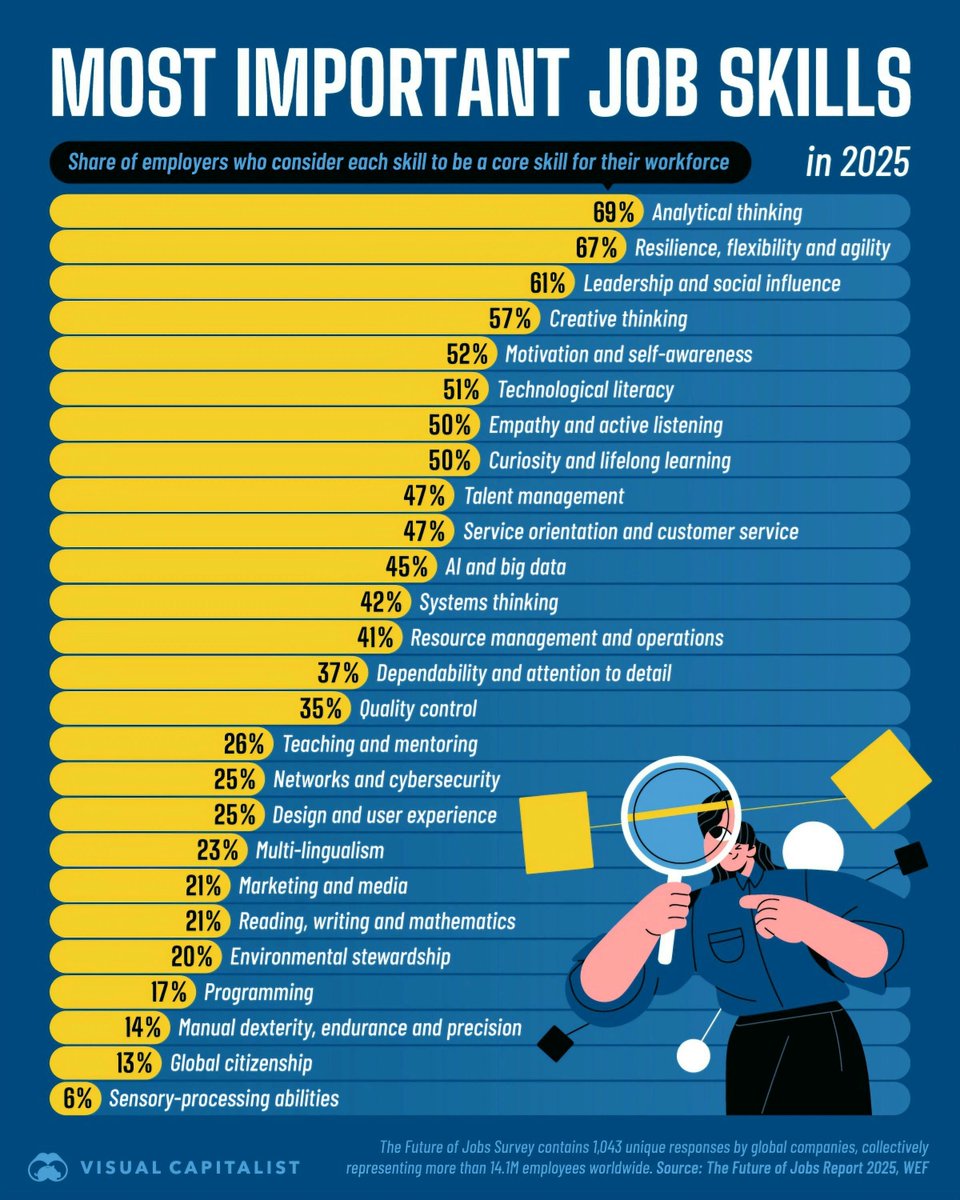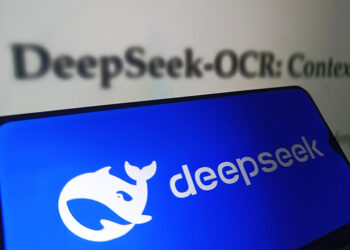Select Language:
The Most Important Job Skills in 2025 💼

Adaptability in an Ever-Changing Work Environment
As industries rapidly evolve with technological innovations, the ability to quickly adjust to new processes, tools, and workplace dynamics remains crucial. Employees who embrace change and are willing to learn new skills will stand out. Companies are prioritizing adaptable team members who can pivot during disruptions, such as shifts to remote work or integration of AI-driven systems. Mastering flexibility ensures continued productivity and professional growth in this dynamic landscape.
Advanced Digital Literacy
In 2025, being digitally savvy extends beyond basic computer skills. Professionals must be proficient with emerging technologies like artificial intelligence, data analytics, cloud computing, and cybersecurity. The ability to interpret complex data sets and utilize digital tools will be indispensable in roles across industries—from marketing to manufacturing. Those who stay ahead of the tech curve can lead innovation and contribute significantly to strategic decision-making.
Emotional Intelligence and Interpersonal Skills
While technical skills are essential, emotional intelligence (EQ) has become a defining factor for success. Employers seek individuals who demonstrate empathy, effective communication, and strong teamwork capabilities. In a remote or hybrid work setting, understanding colleagues’ perspectives, managing conflicts gracefully, and building genuine relationships foster a positive work environment. High EQ also enhances leadership qualities, making such employees valuable for managerial roles.
Critical Thinking and Problem-Solving Abilities
As automation handles routine tasks, the workforce’s focus shifts toward complex problem-solving. Critical thinkers analyze situations thoroughly, question assumptions, and develop innovative solutions. Employers prefer candidates who can approach challenges with creativity and strategic insight. This skill set enables companies to adapt quickly to market changes and maintain competitive advantages.
Lifelong Learning and Self-Development
In 2025, continuous education is not optional; it’s a necessity. The most successful professionals are committed to ongoing learning through online courses, certifications, and professional networks. Staying updated with industry trends and acquiring new competencies ensures relevance in a competitive job market. Self-motivated learners also demonstrate resilience and a proactive attitude, traits highly valued by employers.
Sustainable and Ethical Mindset
Corporate responsibility has shifted focus toward sustainability and ethical practices. Employees who understand environmental impacts and demonstrate social consciousness contribute to a company’s greener initiatives. Skills related to sustainable operations, ethical decision-making, and corporate social responsibility have become desirable, influencing hiring decisions and career advancement opportunities.
Creativity and Innovation
As algorithms handle repetitive tasks, human creativity becomes a strategic asset. Innovators who can generate fresh ideas, develop new products, and improve processes are integral to organizational growth. Creative thinking fuels competitive differentiation and drives technological advancements. Fostering an inventive mindset helps companies stay ahead in rapidly changing markets.
Cross-Disciplinary Knowledge
The future workforce values versatility; professionals with knowledge spanning multiple fields can adapt to diverse roles. For instance, combining expertise in technology and healthcare or finance and data science opens new opportunities. Cross-disciplinary skills enable employees to approach problems from various angles, delivering comprehensive solutions that benefit their organizations.
Effective Remote Work Skills
Remote and hybrid work models continue to dominate the corporate landscape. Employees must excel in digital communication, self-motivation, and time management to succeed outside traditional office settings. Mastering virtual collaboration tools like Teams, Slack, and project management platforms ensures productivity and team cohesion. Building a disciplined routine and maintaining work-life balance are also critical for sustainable remote work success.
Cultural Competence and Global Awareness
As businesses expand globally, understanding diverse cultures and working across borders becomes increasingly important. Cultural competence involves respecting differences, adapting communication styles, and fostering inclusion. Employees who are globally aware can better navigate multicultural teams and international markets, giving their organizations a significant competitive advantage.
In 2025, the job market demands a blend of technical proficiency, emotional intelligence, adaptability, and a mindset geared toward continual growth. Those who cultivate these skills will be prepared to thrive in the evolving world of work, where innovation, sustainability, and human connection remain key drivers of success.





